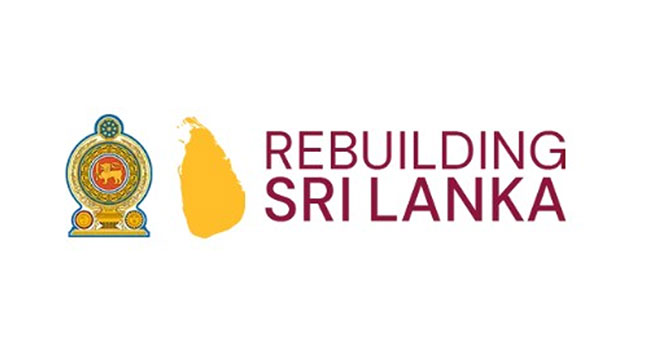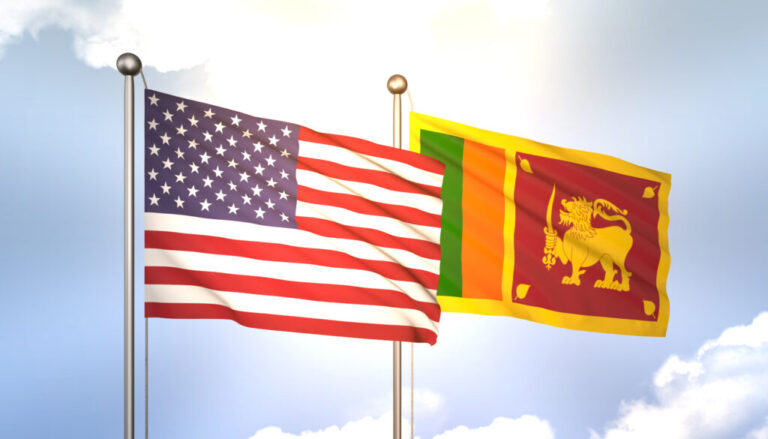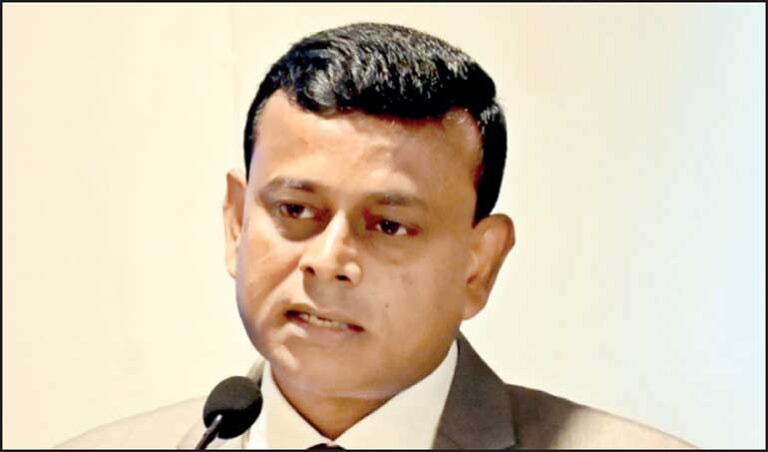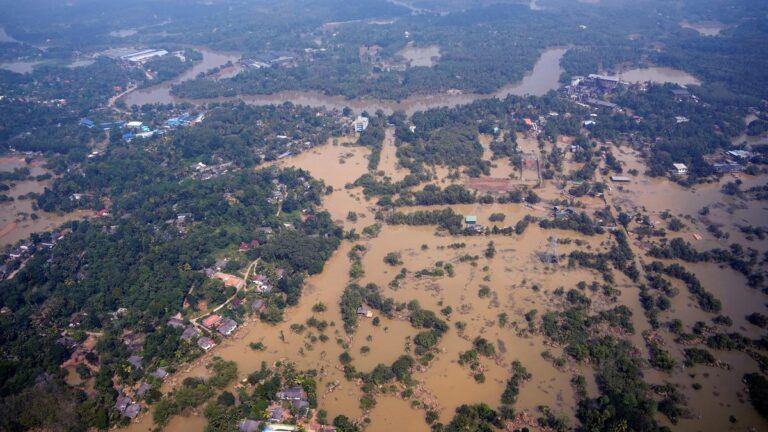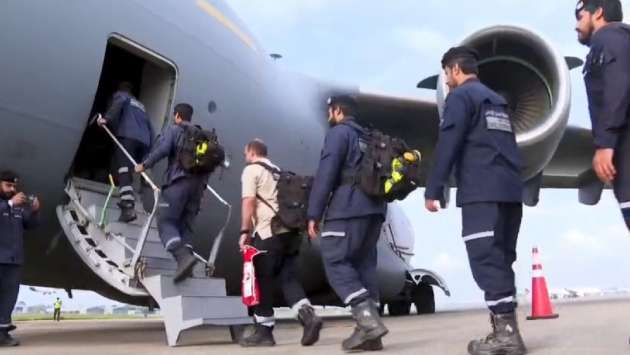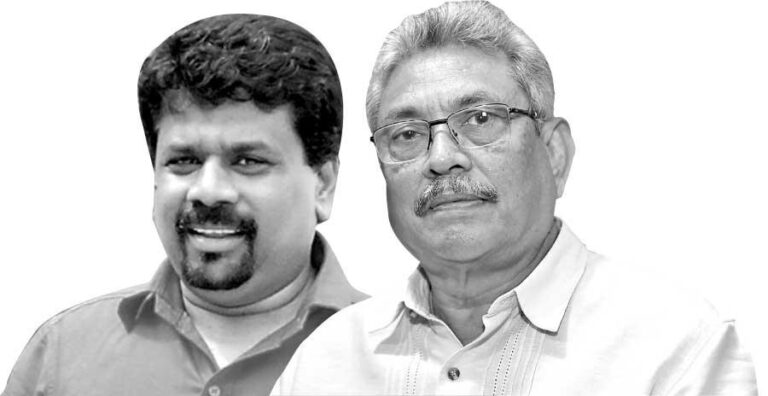By: Staff Writer
December 14, Colombo (LNW): Sri Lanka’s power sector has once again come under strain, with the Ceylon Electricity Board’s (CEB) latest financial results revealing a sharp deterioration that is reigniting concerns over electricity tariffs, IMF benchmarks, and the burden placed on consumers.
Interim accounts for the nine months ended September 2025 show the CEB sliding into a Rs. 9 billion loss, a dramatic reversal from the Rs. 152 billion profit recorded in the same period last year. The September quarter alone saw profit after tax collapse by 98% year-on-year to just Rs. 466 million, underscoring how rapidly margins have eroded.
Revenue for the nine-month period fell by 30% to Rs. 321.7 billion, largely due to tariff reductions, while costs remained stubbornly high. Cost of sales edged up to Rs. 322.9 billion, pushing the utility into a gross loss. Administrative expenses climbed 20%, further squeezing operating performance despite lower finance costs.
Quarterly data shows a steady decline throughout 2025. A Rs. 16.9 billion loss in the March quarter, followed by sharply weakened profits in June, culminated in near-breakeven results by September. While hydropower conditions helped moderate generation costs, they were insufficient to offset the revenue shock caused by aggressive tariff cuts.
Two revisions in 2025 a 20% reduction in January and a 15% increase in June — have left the tariff framework under scrutiny. According to the Finance Ministry, average revenue per unit sold dropped to Rs. 24.64 per kWh, compared to nearly Rs. 42 a year earlier, even as electricity demand rose modestly. This gap has turned the CEB into the largest loss-making state-owned enterprise in the first half of the year.
These developments carry direct implications for Sri Lanka’s IMF Extended Fund Facility. The IMF has repeatedly stressed that cost-recovery tariffs and energy-sector reforms are critical to preventing a return to taxpayer-funded losses. Mission Chief Evan Papageorgiou has warned that predictable tariff-setting is essential for long-term price stability and fiscal discipline, with tariff methodology revisions set as a key benchmark.
However, energy analysts argue that the headline losses mask deeper structural issues. Analyst Dr. Vidhura Ralapanawe points to inconsistencies in tariff filings, delayed clawback adjustments, and accounting mismatches particularly around the Bulk Supply Transaction Account that have distorted both profits in 2024 and losses in 2025. Political intervention in tariff decisions, he says, has further weakened transparency and investor confidence.
For consumers, the dilemma is stark. While lower tariffs offered short-term relief amid a cost-of-living crisis, the CEB’s renewed financial stress raises the risk of future sharp hikes, undermining the very predictability the IMF framework seeks to ensure. With retained losses exceeding Rs. 361 billion and restructuring underway under the Electricity Amendment Act, the utility’s outlook remains fragile.
Unless governance, data accuracy, and tariff discipline improve alongside unbundling reforms, Sri Lanka risks repeating a cycle where temporary consumer relief today translates into deeper financial and tariff shocks tomorrow.
CEB Losses Rekindle Tariff Tensions under IMF Watch hitting consumers
When Disaster Recovery Meets Corporate Power
By: Staff Writer
December 14, Colombo (LNW): The “Rebuilding Sri Lanka” Fund, launched in the wake of Cyclone Ditwah, has been promoted by the government as a bold public private partnership to accelerate national recovery. Yet for many civil society groups, it represents something far more troubling: the corporatisation of disaster governance.
The fund, now holding nearly Rs. 1.9 billion, is overseen by a powerful management committee blending senior state officials with some of the country’s most influential corporate leaders. While business participation in fundraising is not unusual during crises, critics argue that granting sweeping authority over national reconstruction to corporate executives crosses a critical line.
A prominent civil society organisation has issued a sharply worded warning, arguing that private-sector committee members are legally and professionally obligated to maximise shareholder wealth, creating what it calls an “imminent and unavoidable conflict of interest.” Unless these individuals step away from their corporate roles, the organisation says, public trust in recovery decisions will remain compromised.
The concern is not theoretical. Reconstruction inevitably involves large-scale infrastructure, procurement, and commercial projects. Roads, ports, housing, and irrigation systems translate into lucrative contracts. If companies linked to committee members stand to benefit directly or indirectly the risk of preferential tenders and misuse of state compensation funds becomes acute.
Equally contentious is the lack of inclusivity. The committee is entirely male and overwhelmingly Colombo-centric. There is no representation from women, disaster-affected communities, environmental specialists, agricultural experts, or grassroots humanitarian actors who work directly with victims.
This exclusion contradicts both the government’s stated commitment to citizen participation and the principles of the Sendai Framework for Disaster Risk Reduction, which Sri Lanka has formally endorsed. That framework emphasises inclusive, community-based recovery yet the current structure centralises decision-making among a narrow elite.
Supporters of the fund argue that private-sector expertise brings efficiency, credibility, and access to international donors. In a fiscally constrained state, they say, such partnerships are unavoidable.
But critics respond that efficiency without accountability is a dangerous bargain. They argue that disaster recovery must prioritise equity, gender justice, environmental sustainability, and social cohesion not speed alone.
The fear, as one activist put it, is that Sri Lanka is being transformed into “Sri Lanka Inc.,” where national trauma becomes an opportunity for elite-driven reconstruction rather than people-centred recovery.
As rebuilding moves from emergency relief to long-term development, the unresolved questions surrounding governance, conflicts of interest, and representation may prove just as consequential as the cyclone itself.
Strategic Promises, Trade Silence: Sri Lanka Awaits US Clarity
By: Staff Writer
December 14, Colombo (LNW): The United States’ stated priorities for Sri Lanka maritime security, economic reform, and countering China’s influence were laid out clearly by President Donald Trump’s nominee for ambassador, Eric Meyer.
Eric Meyer’s testimony before the US Senate painted Sri Lanka as a strategic partner rather than a fragile post-crisis state. Yet beneath the language of partnership lies an imbalance: Washington’s security-driven agenda appears far clearer than its economic commitments, particularly on trade.
The nominee’s focus on maritime security reflects Washington’s broader Indo-Pacific calculus. With US Navy vessels and global energy shipments routinely passing Sri Lanka’s shores, the island is increasingly viewed as a security asset. Defence cooperation, port security, and maritime surveillance were presented as mutually beneficial, positioning Sri Lanka as an emerging regional security partner rather than merely a recipient of aid.
Economic recovery was addressed, but largely through the lens of reform discipline. Meyer tied Sri Lanka’s independence directly to IMF-backed reforms, arguing that fiscal stability and structural change would naturally attract US investors. This framing places responsibility squarely on Colombo while offering limited insight into what Washington is prepared to deliver in return.
The silence surrounding tariff relief is particularly striking. For Sri Lanka, access to the US market especially for apparel remains a cornerstone of export earnings. Reducing tariffs from 40 percent to 20 percent could significantly boost competitiveness, employment, and foreign exchange inflows. Yet despite being central to Sri Lanka’s recovery narrative, tariffs did not feature in the hearing.
China’s role dominated the political undertones. US lawmakers openly criticised Beijing’s involvement in Sri Lanka’s port infrastructure, describing it as a warning to other nations. Meyer stopped short of confrontational language but stressed sovereignty and transparency. The implicit message was clear: Sri Lanka is expected to lean away from China. However, without tangible trade or financial incentives, such a shift becomes economically risky.
Humanitarian assistance, including cyclone relief, showcased US soft power and was widely welcomed. Still, emergency aid and strategic cooperation do not substitute for sustained economic engagement. Sri Lanka’s policymakers face a delicate balancing act meeting IMF targets, managing debt, and navigating great-power competition while exporters wait for signals that trade barriers will ease.
Ultimately, Meyer’s testimony reflects a US approach that prioritises security alignment and reform compliance over immediate economic relief. For Sri Lanka, the challenge lies in translating strategic importance into concrete economic gains. Until Washington addresses tariffs directly, the promise of a “strong and enduring partnership” will remain incomplete.
Dollar Bond Fund Gains, But Regulatory Questions Persist
By: Staff Writer
December 14, Colombo (LNW): Sri Lanka’s once-distressed dollar bond market is showing renewed signs of life, but the resurgence is also reviving scrutiny over the legality and regulatory boundaries governing dollar-denominated investment funds.
At the centre of attention is the Ceylon Dollar Bond Fund (CDBF), which has delivered a robust 12.3 percent return in U.S. dollar terms year-to-date by mid-September 2025, riding on the recovery of restructured sovereign debt.
Managed by Ceylon Asset Management (CAM) and supported by Deutsche Bank as trustee and custodian, the fund’s performance reflects a gradual restoration of investor confidence following Sri Lanka’s successful debt restructuring in December 2024.
A senior official at Sri Lanka Insurance Corporation (SLIC), a key stakeholder in CAM, said the fund’s gains signal cautious optimism toward Sri Lanka’s sovereign instruments after years of default-induced pessimism.
CDBF is an open-ended unit trust regulated by the Securities and Exchange Commission of Sri Lanka (SEC). Its mandate limits investments to Sri Lankan International Sovereign Bonds (ISBs) and select dollar-denominated securities backed by bank guarantees and listed on international exchanges.
The structure offers investors protection from rupee depreciation while enabling repatriation of capital and income in foreign currency features that have made the fund particularly attractive to overseas Sri Lankans amid aggressive digital marketing campaigns.
CAM attributes the fund’s rally to improving macroeconomic fundamentals. The rebuilding of foreign reserves to around US$6.2 billion, moderating inflation, and relative currency stability have underpinned renewed interest in Sri Lanka’s restructured debt. Yield compression in sovereign bonds—from roughly 15 percent in early 2025 to near 10 percent by October—has further reinforced perceptions of reduced default risk.
Still alongside optimism, regulatory caution remains firm. The Central Bank of Sri Lanka (CBSL) has reiterated that while foreign-currency funds can help attract capital, it does not endorse individual investment products. Crucially, the central bank has clarified that funds held in Personal and Business Foreign Currency Accounts cannot be directly invested in CDBF, and banks have been instructed to enforce this restriction strictly.
This clarification has raised questions among investors over compliance and marketing practices, particularly as the fund targets diaspora and regional investors. Regulators warn that strong returns should not obscure inherent risks, including global interest rate movements, geopolitical shocks, and renewed market volatility.
Analysts note additional upside from new GDP-linked Macro Linked Bonds, which could deliver attractive returns if economic growth exceeds projections. However, authorities stress that systemic stability and investor protection take precedence over performance narratives.
For many market participants, CDBF has become a symbol of Sri Lanka’s tentative return to financial credibility. Still, its success underscores the need for clear regulatory guardrails to ensure that renewed confidence does not outpace compliance in a fragile post-crisis environment.
UNFORGIVABLE SHARP BUSINESS PRACTICE CALLS FOR IMMEDIATE ACTION & FORENSIC ANALYSIS ON INSURER, PERPETRATORS, AND GOVT. ANALYST
FARAZ SHAUKETALY
The recent investigation by CIABOC – Bribery Commission – into alleged fraudulent activities by an insurance company has triggered a deep sense of disgust at what is alleged.
This disgust is heightened due to the inherent trust policyholders have in their chosen insurance company. When a motorist takes out a motor insurance policy, trust and integrity play a significant role. The motorist trusts the insurance company to provide coverage and financial protection in case of accidents or damages. They rely on the insurer to handle claims fairly and efficiently.
The insurance company is expected to act with integrity, providing clear policy terms, transparent claims processes, and fair settlements.
In Sri Lanka, insurance companies are regulated by the Insurance Regulatory Commission of Sri Lanka (IRCSL), which aims to promote fair practices and protect policyholders’ interests.
The allegation is that compromised Government Analyst reports were used to deny claims made by policyholders.
It is absolutely essential that a full forensic audit be engaged in to fully investigate the insurer, its officers, the role of the insurance regulator IRCSL, and other drivers of this significant fraudulent activity which has brought the industry into disrepute – costing policyholders huge sums of monies along the way.
It goes without saying that the Insurer in question must be held accountable and be forced to pay up on all claims that have been compromised by the purported use of compromised Analysts’ reports.
The alleged actions of this insurer – setup by a commercial tycoon of yesteryear, Harry Jayawardena – honestly, beggars’ belief.
It is alleged that the company sought to financially benefit and inter alia deliver outstanding results. Except of course that they allegedly did so by inducing an officer of the state – a government analyst – to provide blatantly false analyst reports to unlawfully gain advantage and intentionally defraud the policyholders.
A robust investigation and a trial thereafter may reveal that on these two counts alone, those responsible must be given the maximum custodial sentences provided under the law.
Corporates cannot simply blame it on the paid help. It too must be made to pay significant reparations, be given a compulsory suspension, be subject to a forensic audit of claims rejected using the compromised Analysts’ reports and a refund of premium plus compensation of several multiples of the original claim. If such action leads to the winding up of the company – then so be it and let the controlling shareholder pay up.
In all of these we must also ask what pro-active role the regulator has been playing or not. This is why we ask for a full forensic analysis of this alleged major fraud, major departure of due process.
It appears that even in death the questionable legacy of Harry Jayawardena continues to haunt and adversely impact the people of Sri Lanka. Harry had a penchant for being the lead editor of calling people names often without basis. We wonder how he would brand the implementer of this dastardly and heinous act? Especially as it was Harry who co-founded the company along with the man now remanded.
The crimes and or questionable acts raised here are all allegations. Collectively we look forward to a comprehensive and robust investigation, including a full forensic analysis in which not only ‘small fish’ will be in the net and held accountable but the ‘sharks and whales will also face the full force of the law and corporate sanctions and penalties also be levied. The range of the crime – if found guilty – is comprehensive. Were personal taxes paid, were all and any assets gained declared to the IRD. In essence with this government of change committed to accountability and upholding the law, we can but look forward to an unchallenged, definitive legal conclusion.
Government Outlines Plans to Resettle Thousands Displaced by Recent Disasters
December 14, Colombo (LNW): Commissioner General of Essential Services Prabath Chandrakeerthi has confirmed that nearly 7,000 individuals remain in temporary relief centres, with efforts underway to resettle them within the next two to three months.
Speaking at a briefing today (14), he revealed that 6,138 homes have been completely destroyed, making immediate resettlement a complex task.
Partial damage assessments conducted by the National Building Research Organisation (NBRO) will allow families in safe homes to return more quickly once inspections are complete.
Chandrakeerthi noted that the greatest challenge lies with those whose properties were entirely lost, adding that the government has designed a dedicated programme to accelerate their resettlement. District Secretaries have been instructed to identify state-owned land that can be used to accommodate displaced families.
Regarding schools, he confirmed that all institutions are scheduled to reopen on 16 December 2025, except for those currently functioning as relief centres or situated in areas deemed high-risk.
The Commissioner General also reminded the public that any concerns about the distribution of aid or the availability of essential services can be reported through the 1904 hotline.
Cyclone Ditwah: Over 6,000 Homes Destroyed Across Sri Lanka
December 14, Colombo (LNW): The Disaster Management Centre (DMC) has reported that the recent devastation caused by Cyclone Ditwah has destroyed more than 6,000 homes nationwide, with tens of thousands more suffering partial damage.
According to the latest figures, a total of 6,164 houses have been completely lost, while 112,110 homes have sustained varying degrees of damage. The Kandy District has been hardest hit, with 2,013 houses destroyed, followed by Nuwara Eliya, where 767 homes were completely lost.
In terms of partial damage, the Puttalam District recorded the highest numbers, with 21,137 houses affected and 632 fully destroyed. Other districts have also faced significant losses: 596 houses in Kurunegala, 587 in Badulla, 265 in Kegalle, 256 in Gampaha, 247 in Matale, 245 in Anuradhapura, 111 in Ampara, and 157 in Polonnaruwa were reported as completely destroyed.
The DMC has emphasised that recovery and rebuilding efforts are underway, with priority being given to providing temporary shelter and essential aid to affected families while longer-term reconstruction plans are implemented.
UAE Concludes Major Humanitarian Operation in Sri Lanka Following Cyclone Ditwah
December 14, Colombo (LNW): Humanitarian teams from the United Arab Emirates have wrapped up their mission in Sri Lanka, which was launched under the guidance of President Sheikh Mohamed bin Zayed Al Nahyan to provide urgent support to those affected by Cyclone Ditwah and subsequent landslides.
During the operation, UAE teams delivered approximately 116 tonnes of critical aid, including essential food items, tents, and comprehensive relief kits, aimed at assisting families displaced or otherwise impacted by the disaster.
The UAE’s specialised Search and Rescue unit carried out field operations in coordination with local authorities, recovering the bodies of 20 missing individuals and administering first aid to eight others with minor injuries.
Officials noted that the relief efforts reflect the UAE’s longstanding commitment to humanitarian assistance and international solidarity, demonstrating a sustained effort to support affected communities in Sri Lanka until recovery and normalcy are fully restored.
For a political solution in Sri Lanka, negotiate with Buddhist Hierarchies!
(This article vindicates logical arguments, political theory, common sense, and history in brief)
By S. V. Kirubaharan, France
Language academies associated with linguistic purism, protectionism and prestige, accept that the Tamil language is the oldest in the world, dating back to pre-history – the second millennia BCE – Before Common Era.
Until the arrival of Prince Vijaya from India in 543 BCE, there was no archaeological evidence either concerning Buddhism or the Sinhala language, in the island of Sri Lanka. Of course, just like what happens presently in Sri Lanka, even in the good old days, Buddhism and the Sinhala language used force, laying down various foundations through their dictatorial path.
Buddhism and the Sinhala language have their roots in North India. Buddha was a Hindu from India – the Sinhala language is a compilation from Pali and Sanskrit. The Tamil language dates back to pre-history.
There is no doubt that Lord Buddha was born in 623 BC in Lumbini located in southern Nepal on the Indian border. So how can Buddhism and the Sinhala language have been in Sri Lanka long before the Tamils and their native religion Saivaism (Hinduism)?
This is the reason why one of the Buddhist orders in Sri Lanka started an international lobby, saying that that Lord Buddha was born in Sri Lanka! They met various diplomats and lobbied in the last session of the UN Human Rights Council in Geneva.
Buddhists in Sri Lanka follow Theravada Buddhism, practised in Thailand, Myanmar (Burma), Cambodia, and Laos. In Sri Lanka, there are many Buddhist orders – Malwatte, Asgiriya, Amarapura, the Ramanjana, Amarapura Maha Nikaya, Ramanjana Nikaya and a few others led by Buddhist hierarchies.
Before the first colonisers arrived from Portugal in the present Sri Lanka, there were three Kingdoms – Jaffna Kingdom, North and East (Then North), Kotte South (South West) and Kandy in the Central highlands.
However, until the third coloniser, the British, amalgamated the three Kingdoms in 1833, all three colonisers ruled the three Kingdoms separately. The Portuguese ruled from 1505 to 1658; the Dutch from 1658 to 1796, and the British from 1796 to 4 February 1948.
During the British period in 1862, Tamils from Southern India were brought as indentured labourers to work on the tea plantations in the hill country. The native/indigenous Tamils in their homeland in the North and East are different in identity and origin to the Tamils in the hill country. I say this, because Sinhala Buddhists disseminate exaggerated propaganda saying that the Tamils in the island of Sri Lanka came to the island only during the British period.
The British, as they were leaving the island in 1948, handed power to the numerical majority, the Sinhala, with minor safe-guards for the Tamils in the “Soulbury Constitution” which remained until 1972.
Soon after the British left the island, a massive Sinhala colonisation scheme started, initially in the Eastern province. Gal Oya in Batticaloa, Allai and Kathalai in Trincomalee were colonised under the pretext of development.
On 15 November 1948, the Tamils who worked for many decades in the Tea plantations were deprived of casting their votes and selecting their own representatives to Parliament. More than a million plantation workers were rendered stateless. In 1964, under a pact with India, the Tamils in the hill country whose citizenship was denied were repatriated to India.
Communal riots
The first communal riot carried out by Sinhala Buddhists was against Muslims in June 1915. This caused heavy casualties among the Muslims. According to available records, 36 Muslims were killed, 205 injured, and raped. Nearly 85 mosques were damaged and more than 4,075 Muslim-owned shops were looted by the Sinhala rioters.
In 1956, 1958, 1977, 1980, 1981 and, in July 1983 anti-Tamil pogroms broke out in the island. Many Tamils were massacred, properties worth millions of rupees belonging to Tamils were looted and destroyed by the Sinhala Buddhist rioters. Some of those riots had the support of the governments in power.
On 10 January 1974, Sinhalese Police unleashed unprovoked attacks against those attending the prestigious “4th World Tamil Research Conference” in Jaffna, leaving nine innocent civilians dead.
In June 1981, an anti -Tamil pogrom was unleashed in Jaffna, in the North. The Jaffna Public Library was burnt down by the Sri Lankan armed forces, allegedly under the direction of two senior government ministers, Gamini Dissanayake and Cyril Matthew. 95,000 volumes of books including numerous culturally important and irreplaceable manuscripts, and the buildings were destroyed by arson. The Jaffna city market, the office of the Tamil daily newspaper “Eelanadu”, the office of the political party Tamil United Liberation Front – TULF, etc were burnt down by the Sri Lankan security forces.
In July 1983, a major anti-Tamil pogrom took place all over the island. The then government in power accused the JVP, the present NPP responsible for those riots. The JVP was banned, and its members went into hiding.
During four days of riots, more than 6,000 Tamils were killed, and over 250,000 were rendered refugees. Thousands of Tamils fled the country and went to India and to Western countries. Tamils’ properties worth billions of rupees were looted and destroyed by the rioters.
During the same period, 27-28 July 1983, fifty-three (53) Tamil political prisoners were massacred inside the walls of a high-security Welikadai prison in Colombo by Sinhala inmates.
During the same period, hundreds of youths from the North and East joined the Tamil militant movements, and the TULF Members of the Parliament sought asylum in India.
The JVP/NPP government has now been in power for a year. They were able to arrest and jail a former President. If they had no involvement in the July 1983 riots, why are they reluctant to prove their innocence? Either they were the culprits or they were in favour of what happened to the Tamils.
The world has seen the motives and the policies of the JVP/NPP government towards the Tamils, in their actions of demerging the North and East in 2006 and making the P-TOMS (Post-Tsunami Operational Management Structure) null and void in July 2005. Locally and internationally, some are dreaming that this government will bring a political solution to the bloody ethnic conflict.
Political moves since 1957
On 14 June 1956, then Prime Minister S. W. R. D. Bandaranayke – SWRD, proclaimed the “Sinhala Only Act” making the Sinhala language the only official language of the island.
On 26 July 1957, SWRD signed an agreement known as “Banda Chelva” pact with a Tamil leader S.J.V. Chevanayagam – SJV. It was based on a federal system devolving certain powers to the Tamils in the North East provinces.
Within a week of signing the ‘Banda-Chelva’ pact, it was unilaterally abrogated by the Prime Minister due to vehement protests staged by the opposition United National Party – UNP, Buddhist clergy and government back-benchers. The UNP undertook a march to Kandy in protest against this pact.
On 25 September 1959, the Prime Minister SWRD, who signed the agreement with the Tamil leader SJV was assassinated by a Buddhist monk – Talduwe Somarama Thero.
When Somarama Thero was sentenced to death by the Court, he converted to Christianity. He was baptised in his cell by an Anglican priest before he was hanged in the gallows at Welikada Prison.
On 24 March 1965, an agreement known as “Dudley-Chelva” Pact was signed between Dudley Senanayake and Tamil leader S. J. V.
This agreement was also abandoned without being implemented due to opposition from the SLFP, the Buddhist clergy, and UNP backbenchers, mainly motivated by J.R. Jeyawardena.
In 1972, Sri Lanka became a Republic. In the new republican constitution, even the minor safe-guards for the Tamils in the ‘Soulbury constitution’ were removed and Buddhism was given foremost place in the constitution.
During the same period, the government introduced “standardisation” in Education, to prevent studious Tamil students from entering the Universities.
On 14 May 1976, the TULF was formed by the Tamil leaders. The TULF contested the Parliamentary elections of July 1977, on a mandate of establishing the ‘right to Self-determination’ of the Tamils in the Tamil homeland, the North and East. The TULF won overwhelmingly in the 1977 elections.
In 1979, the draconian Prevention of Terrorism Act (PTA) was initially passed in Sri Lanka as a temporary measure to counter the growing Tamil militancy in the North and East. Then in 1982, it was made a permanent law. This authorises the security forces to arbitrarily arrest and detain people without warrants for up to eighteen months. It violates fair trial rights, and puts detainees at risk of torture or other ill-treatment, amongst other violations. Many men and women disappeared. This PTA is still in use.
On 8 August 1983, the government enacted the 6th amendment to the constitution, rejecting the right to self-determination of the Tamil people. It outlawed the mandate voted by the people in the North and East.
In 1984, the government gave free hand to the security forces to arrest, torture and kill anyone in the North and East. Many men and women disappeared. Also, severe losses and damage to the people and to their properties were caused by artillery shell fire and aerial bombing.
From 1984 onwards, many negotiations took place under the mediation of India and Norway. Nothing brought a productive outcome for the people of the North and East.
Talks were held with Presidents – J.R.Jeyawardena, R. Premadasa, Chandrika Kumaratunga, Ranil Wickremasinge and Mahinda Rajapaksa. More than seven decades of negotiation have found no political solution to the people of the North and East. So what is lacking in the governmental negotiations?
Meanwhile, between 1984 and 2009 May, Tamils had, by an armed struggle, established a de-facto government with all infrastructures – welfare institutions, banks, judiciary including appeal court, police, etc. covering seventy percent of the territory in the North and East. The only things lacking were their own currency and UDI – a Unilateral Declaration of Independence.
In 2015, President Maithiripala Sirisena said that he became the President with the vote of the people of the North and East, and that he would find a political solution. But he did nothing, like the other leaders.
Realities to be considered
If one analyses more than seventy years of negotiations, failures, processions to Kandy against written pacts, unilateral abrogation of pacts, one sees the proof that Buddhist hierarchies in Sri Lanka are not in favour of any political settlement to the bloody ethnic conflict.
Buddha’s preaching taught Buddhist monks not to have attachment to material things. But in Sri Lanka, the Buddhist leadership and clergy manipulate politics behind the scenes, advising governments in power on ethnic issues.
Now it is time for the International community to realise indisputable adamant facts and take action. Even though there are many other reasons, the Sinhala Buddhist hegemony and their opposition to a pluralistic society are the main reason for the lack of a political solution.
Unlike the Dalai Lama of Tibet or Buddhist leaders in other countries, Sri Lankan Buddhist monks/leaders support violence. Whoever rules Sri Lanka, regarding ethnic issues, they must listen to Buddhist leaders. Otherwise, their days in power are numbered. There is ample evidence of this.
In 1956 the 3rd Prime Minister, Sir John Kotelawala said in a public meeting that he would ‘remove the yellow robes from the Buddhist monks and paint tar on their back side’. This statement brought an end to Kottalawala politics.
In 1959, SWRD was shot by a Buddhist monk. In hospital SWRD described his assailant as a ‘foolish man in robes’.
Before the 1977 election, J R Jayewardene said that the Buddhist clergy should keep away from politics.
So far, how many communal riots, how many massacres and killings have taken place in various parts of Sri Lanka? Have any members of the Buddhist hierarchy or Buddhist orders condemned any of those incidents?
Way forward
Some of the Buddhist Monks misbehave in Sri Lanka, against Lord Buddha’s teachings and preaching. They are highly involved in politics, establishing political parties, contesting in elections, participating in political rallies and voicing the worst hate speech to fuel the lay Buddhist people. Also, they booze, smoke, chew beetle, become intoxicated, drive vehicle, steal, lie, behave with sexual misconduct and kill.
The facts above, clearly indicate that any political solution for the Tamils in their homeland, the North and East, is in the hands of the Buddhist hierarchies. It’s sad to note that, so far, not a single Tamil leader has spoken of this practical reality.
Firstly, whoever wants a peaceful political settlement in Sri Lanka should approach all three colonisers. The Tamil diaspora in the United Kingdom should reach the UK government, and the Tamils in Europe should reach Portugal and the Netherlands. This is to motivate them to come out with a statement that during their period in the present Sri Lanka, there were three Kingdoms in existence separately. The UK should also say it was they who amalgamated all three Kingdoms in 1883.
Secondly, Tamils in Norway, should ask Norway to issue a statement that when the ceasefire agreement was signed between the government of Sri Lanka and the Liberation Tigers of Tamil Eelam – LTTE in 2002, there was a de-facto government with all infrastructures, and it covered more than two-thirds of the North and East.
With all this evidence and with the help of other Buddhists in Theravara countries – Thailand, Myanmar (Burma), Cambodia, Laos – those who are for a peaceful political settlement in Sri Lanka should approach the Buddhist orders in Sri Lanka.
Any meaningful negotiation should take place with them, because they are the stumbling block to every peaceful solution to the Tamils in the North and East.
If bad comes to worse, Tamils will be forced to seek solutions through the United Nations – either through ‘Non-Self-Governing Territories’, or the ‘Permanent Forum on Indigenous Issues’. There are reasons why the Tamils haven’t made any attempts through these paths in the past.
AKD Government heading the Gota Way?
By Adolf
The recent incident involving former Speaker Asoka Ranwala — beginning with questions over his claimed PhD credentials and culminating in a widely reported drunk-driving episode — has taken on an almost comic quality. Yet behind the public amusement lies a far more serious concern. The manner in which the episode appears to have been quietly managed, if not fully addressed, raises troubling questions about accountability under the current administration. This episode is not an isolated lapse. It points to a broader pattern in governance: an eagerness to pursue alleged wrongdoings of past administrations for political effect, while showing reluctance to confront issues emerging within the present government. Allegations relating to asset declarations, documentation irregularities and procedural lapses are frequently deflected or ignored. Such selectivity risks eroding the very principles of transparency and integrity that this administration claimed as its moral foundation.
Confrontations
At the same time, the President’s leadership style has become increasingly confrontational. He appears to thrive on conflict with the opposition, projecting an image of toughness and political bravado. Critics have likened him to an “Asian Trump,” a comparison that is more rhetorical than real. Donald Trump, controversial as he was, entered office as a billionaire with a substantial electoral base and later secured a second presidential term. AKD, by contrast, did not secure an outright majority of the popular vote. His victory was largely a by-product of a deeply divided opposition. The failure of Sajith Premadasa and Ranil Wickremesinghe to unite or manage their political differences created a pathway for AKD’s ascent to the Presidency. However, subsequent electoral outcomes suggest that this initial advantage has not translated into sustained public endorsement. The momentum seen at the general election was significantly diluted at the local government polls, where voter sentiment told a more sobering story. Even at the level of cooperative society elections — often a reliable barometer of grassroots opinion — the ruling coalition has repeatedly underperformed.
Cyclone Disaster
The government’s handling of the recent cyclone disaster may prove to be a defining moment. With estimates suggesting losses of nearly Rs. 300 billion and close to a thousand lives affected or lost, the response was widely seen as delayed and poorly coordinated. Natural disasters are the ultimate test of state capacity and leadership. In this instance, gaps in preparedness, communication and execution were evident, and public frustration was palpable.
Rather than acknowledging shortcomings and recalibrating, the administration appears increasingly defensive. Criticism is frequently dismissed as politically motivated, while dissent is met with hostility rather than engagement. This aversion to critique evokes the early warning signs of the previous administration, where insularity and an unwillingness to listen led to policy missteps and, ultimately, national crisis.
Sajith Premadasa
Effective political leadership demands restraint, perspective, and the maturity to rise above personal or political insecurity. Sri Lanka’s challenges require sustained focus on economic stabilisation, institutional credibility, disaster resilience, and social cohesion — not performative confrontation or selective accountability. If the current trajectory continues, the AKD government risks repeating the very errors that brought down its predecessor. The signals from the electorate are already evident. Whether the leadership chooses to heed them will shape not only its own political future, but the country’s direction in the years ahead. At the same time, this moment presents a critical test for the opposition. Sajith Premadasa, having contested and lost two presidential elections, must now decide whether he can credibly lead a renewed challenge. Electoral politics is as much about renewal as persistence. He cannot indefinitely shelter behind past controversies, including questions surrounding cultural funds or anxieties about prior business dealings, real or perceived. If concerns over potential action by the current administration inhibit his ability to lead decisively, then it may be time to step aside and allow a fresh, unencumbered leadership to emerge. Sri Lanka needs an opposition that inspires confidence, offers clarity of purpose, and presents a credible alternative ( there is Harsha de Silva, Sujewa Senansinghe, Dayasiri Jayasekara and Champaka Ranawake) — not one constrained by hesitation or defensive politics


